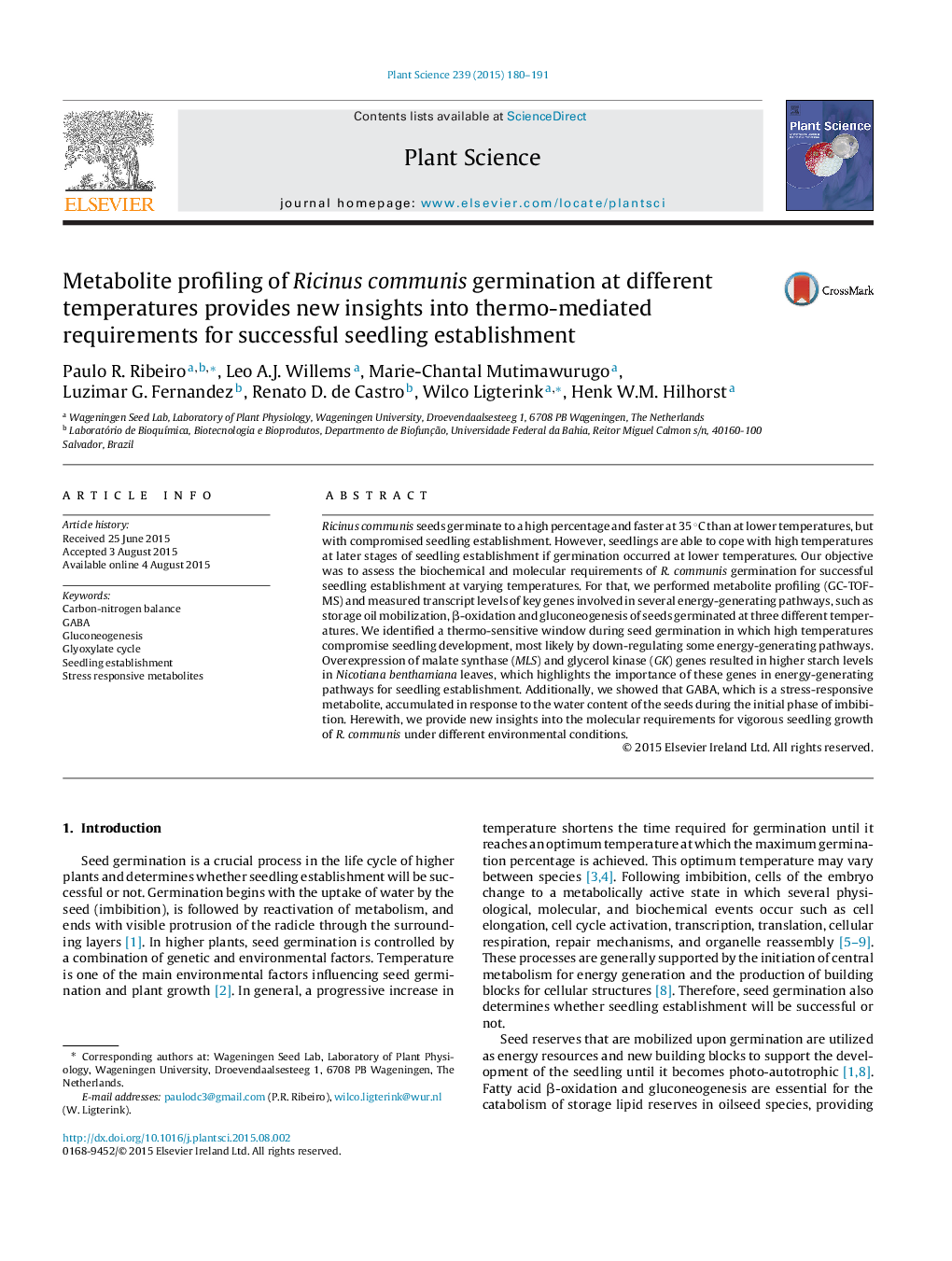| Article ID | Journal | Published Year | Pages | File Type |
|---|---|---|---|---|
| 2016993 | Plant Science | 2015 | 12 Pages |
Abstract
Ricinus communis seeds germinate to a high percentage and faster at 35 °C than at lower temperatures, but with compromised seedling establishment. However, seedlings are able to cope with high temperatures at later stages of seedling establishment if germination occurred at lower temperatures. Our objective was to assess the biochemical and molecular requirements of R. communis germination for successful seedling establishment at varying temperatures. For that, we performed metabolite profiling (GC-TOF-MS) and measured transcript levels of key genes involved in several energy-generating pathways, such as storage oil mobilization, β-oxidation and gluconeogenesis of seeds germinated at three different temperatures. We identified a thermo-sensitive window during seed germination in which high temperatures compromise seedling development, most likely by down-regulating some energy-generating pathways. Overexpression of malate synthase (MLS) and glycerol kinase (GK) genes resulted in higher starch levels in Nicotiana benthamiana leaves, which highlights the importance of these genes in energy-generating pathways for seedling establishment. Additionally, we showed that GABA, which is a stress-responsive metabolite, accumulated in response to the water content of the seeds during the initial phase of imbibition. Herewith, we provide new insights into the molecular requirements for vigorous seedling growth of R. communis under different environmental conditions.
Related Topics
Life Sciences
Agricultural and Biological Sciences
Plant Science
Authors
Paulo R. Ribeiro, Leo A.J. Willems, Marie-Chantal Mutimawurugo, Luzimar G. Fernandez, Renato D. de Castro, Wilco Ligterink, Henk W.M. Hilhorst,
